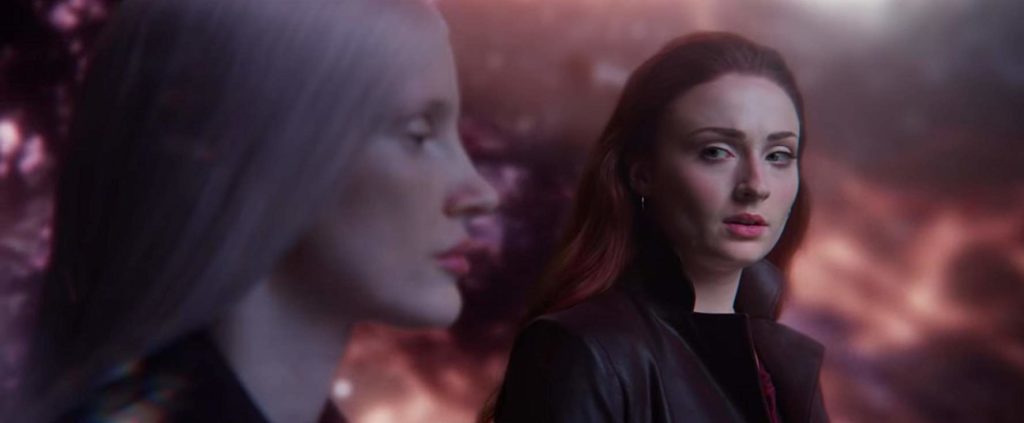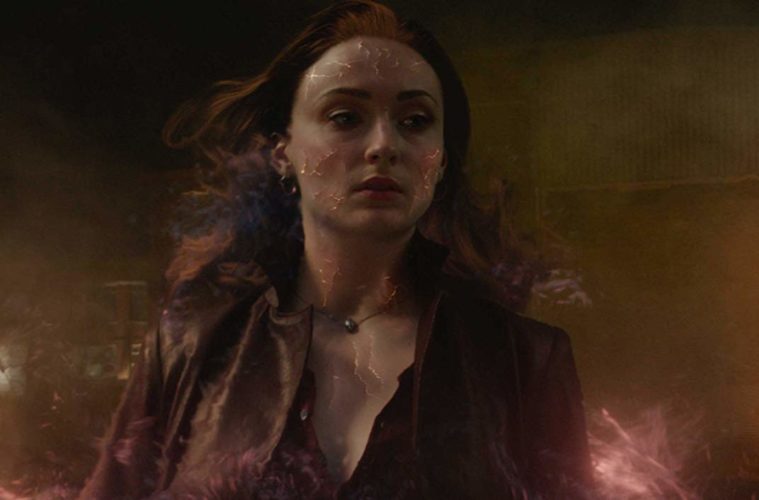A disappointing ending to an already dying franchise, X-Men: Dark Phoenix proves to be yet another misguided installment to Fox’s X-Men series, closing out the original generation of Marvel films that saved the comic book company from bankruptcy nearly two decades ago. To be fair, after several failed attempts to revive the series’ relevancy over the past several years, excluding spin-offs from the franchise’s main storyline such as the critically-acclaimed Logan, it is unclear whether this final film ever even had a chance for success, or if it was, as its opening lines state, “destined to a fate over which we have no control.”
X-Men: Dark Phoenix follows the rise and fall of Jean Grey (Sophie Turner), a powerful mutant with telepathic and telekinetic abilities, who was taken in by Charles Xavier (James McAvoy) and his school for gifted children as a young girl. After being struck by a solar flare on a rescue mission in space, Grey’s powers grow out of control, endangering those she loves and the reputation of mutants worldwide. Welcoming back Jennifer Lawrence as Raven/Mystique, Michael Fassbender as Magneto, Nicholas Hoult as Beast, and Alexandra Shipp as Storm, plus Jessica Chastain as the evil alien Vuk, the cast of strong actors is held back only by the film’s shoddy construction and lazy writing.

X-Men: Dark Phoenix (Fox)
Per usual, this addition to the X-Men series provides audiences with indelibly impressive action sequences and special effects. A train sequence toward the end of the film ranks in the franchise’s top fight sequences for its epic scale and creative combat. Its action scenes may not be as grand as those seen in this year’s Avengers: Endgame, but given the disparity of budget and resources, X-Men holds its ground, perhaps in a way that comes across even more grounded in reality onscreen.
Coming off of Game of Thrones, Sophie Turner manages to prove once again her ability to seize the screen as a powerful queen, and it is refreshing and exciting to see her take some power into her own hands (literally), being able to jump into the action on the battlefield, without the restraints of the feminine duties of Westeros. Still, the British actress’s American accent can use some work, with many of her lines coming across as muddled and faintly incoherent, pulling away from her performance as the most powerful mutant on Earth.

X-Men: Dark Phoenix (Fox)
Above and beyond all other faults, the film’s greatest sin is its lack of cohesiveness to the franchise’s original trilogy from the early 2000s. With the current trio of “X-Men: Beginnings” films supposed to play out as a prequel series for the original movies, as demonstrated by the crossover of old and new in X-Men: Days of Future Past, Dark Phoenix makes decisions that, frankly, make no sense.
The film’s decision to kill off an inconic character makes sense in the microcosm of this installment, providing several of the other characters a motive for vengeance and increasing the film’s emotional resonance with an audience that has come to love her in that role; but seeing as her character plays a prominent role in the original trilogy, the choice makes no sense in the overall timeline. And given her prominent role in the original trilogy, this cinematic sin is repeated with Jean Grey’s ambiguous fate at the end of the film.
Perhaps there is some superhero/time travel/multiverse explanation provided somewhere in the X-Men franchise to explain away the film’s poor plot choices. Maybe the avid fans of the series have a way to look past the movie’s lazy writing. But for the casual viewer, X-Men: Dark Phoenix is a confusing mess and perhaps better left unseen for those hoping to keep the franchise in a positive place in their hearts and minds.
Advertising disclosure: We may receive compensation for some of the links in our stories. Thank you for supporting Irvine Weekly and our advertisers.

